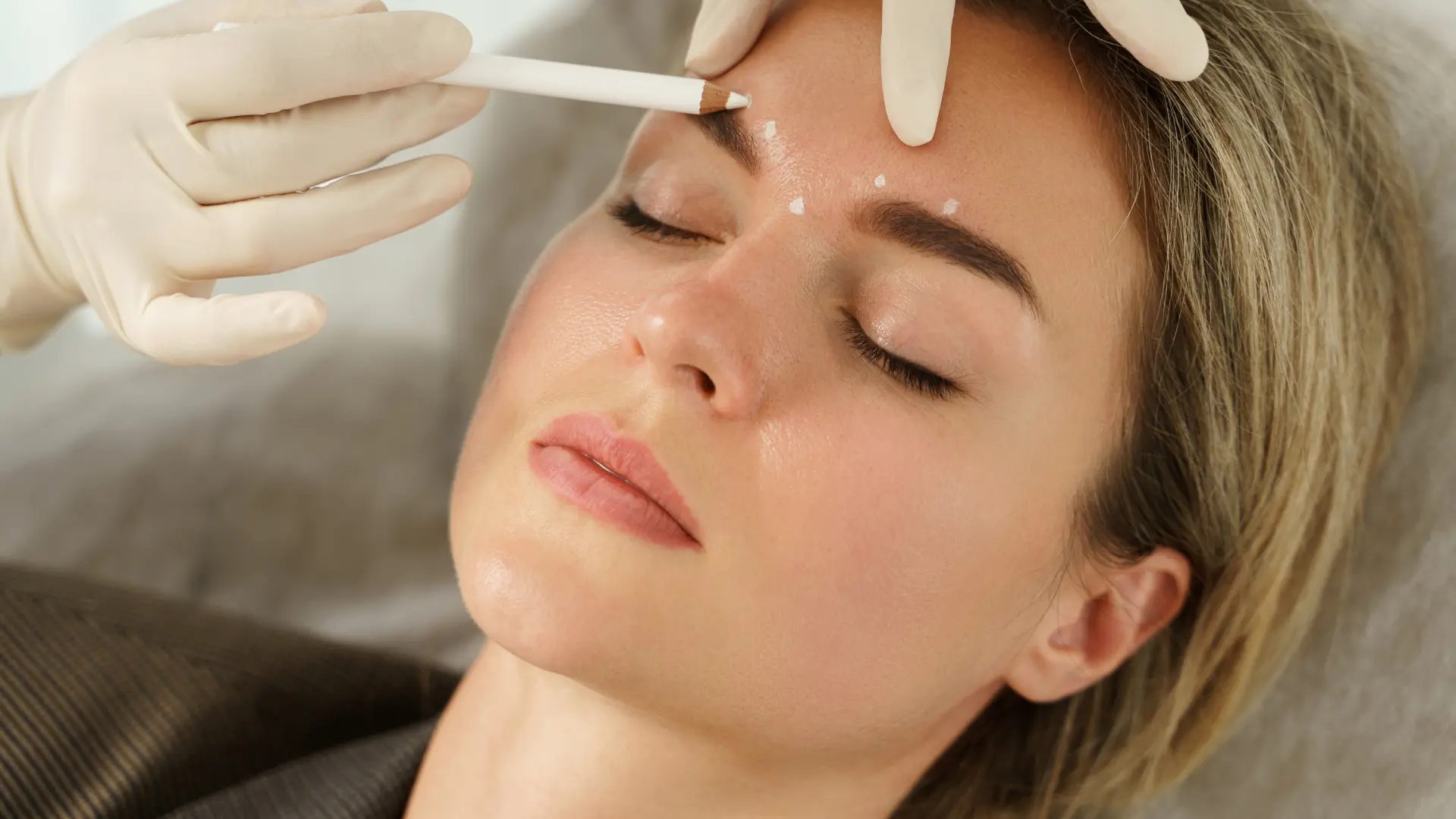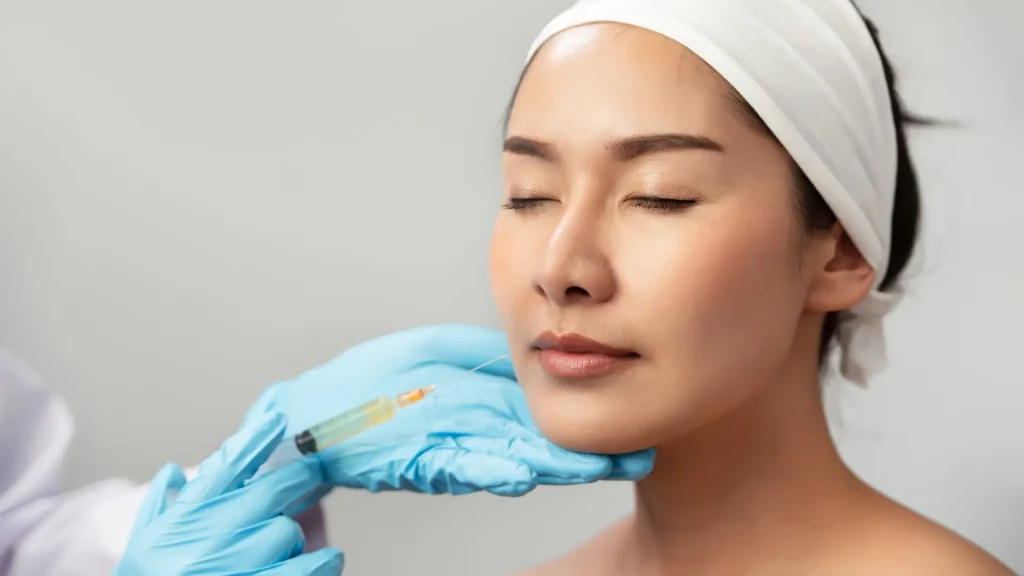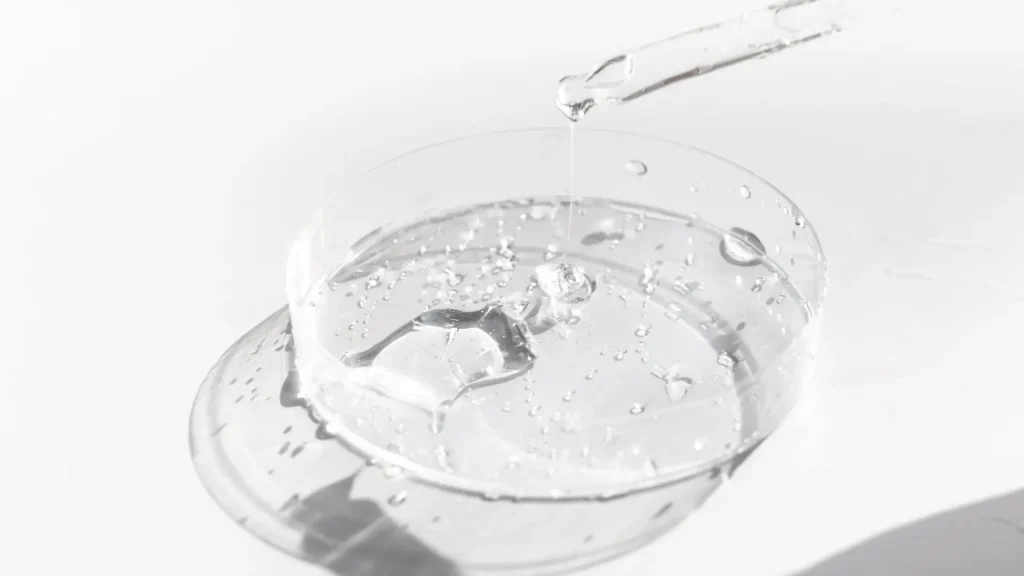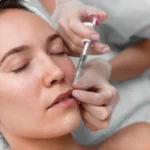

According to the American Society of Plastic Surgeons, the popularity of hyaluronic acid (HA) filler procedures has significantly reached over 2.8 million, increasing 70% in 2022. Such a rise brought HA filler procedures as the second most-performed non-surgical cosmetic procedure, underscoring the growing interest of individuals in this particular aesthetic solution.
Hyaluronic acid fillers have soared in popularity, mainly attributable to the impressive ability of HA to attract water and retain hydration. For individuals seeking a non-surgical solution, Revolax and Juvederm injectable dermal fillers utilize crosslinked hyaluronic acid, effectively addressing skin concerns and longer-lasting results.
In this article, we will compare Revolax vs Juvederm, their composition and formulation, and the intended uses of these dermal fillers.
Key Takeaways
- Revolax and Juvederm are popular aesthetic injectable brands offering a collection of dermal fillers with specific uses and indications.
- Revolax uses high-purity hyaluronic acid (HA) and has undergone a unique crosslinking method, while Juvederm primarily uses hyaluronic acid that utilizes Vycross crosslinking technology.
- Both require specific injection depth into the skin’s surface to volumize, smoothen, and enhance the patient’s skin and features.
- Revolax is known for its smooth texture, ease of injection, and longer-lasting results than Juvederm, for up to 24 months.
- Both Revolax and Juvederm have incorporated lidocaine in their injections, providing comfort to patients during the procedure.
About: Medica Depot is your trusted all-in-one supplier, offering a range of high-quality medical injectables and supplies. Buy Revolax at Medica Depot today! Whether for health professionals, plastic surgeons, dermatologists, licensed estheticians, or other specialists, we can offer genuine, brand-name products you may need. With Medica Depot, we prioritize serving you better to improve the patient’s quality of life.
Introduction to Revolax and Juvederm

Injectable dermal fillers are non-surgical interventions that restore volume, smoothen signs of aging, and enhance facial contours. Medical professionals must administer these fillers to ensure that patients can receive the maximum benefits of the injectables while undergoing a safe procedure.
Revolax and Juvederm are popular aesthetic injectable brands. Both offer a collection of dermal fillers with specific uses and indications. Despite capitalizing on hyaluronic acid’s potency, healthcare providers can compare Revolax vs Juvederm in other factors.
Furthermore, choosing the suitable dermal filler involves considering factors like patient characteristics, health status, treatment area, desired results, and the injectable’s properties. Using inappropriate fillers can increase the risk of complications such as allergic reactions, lumps, asymmetry, or vascular occlusions.
They inject substances beneath the skin’s surface to plump and fill areas that may have lost volume over time.
Chemical Composition and Rheological Properties

Revolax and Juvederm use different methods for their injectables. Revolax uses high-purity hyaluronic acid (HA) and has undergone a unique crosslinking method, enhancing the longevity and stability of the gel solution. Meanwhile, Juvederm primarily uses hyaluronic acid that utilizes Vycross crosslinking technology, delivering effective and long-lasting results.
Revolax boasts its high-purity HA that synchronizes with the skin tissue, offering natural-looking and harmonized results. Its high viscoelasticity allows the product to break down evenly to produce a natural finish.
Juvederm utilizes low- and high-molecular-weight HA to create a specialized, smooth gel filler. Moreover, this technology efficiently crosslinks the HA molecules, allowing a longer duration of effects.
Dermal fillers’ chemical composition and rheological properties significantly influence their performance. While Revolax and Juvederm differ in the methods used for their injections, both have proven their injectables’ efficacy and how they interact with the skin.
Intended Use and Application
Revolax and Juvederm have exhibited their intended use and application for facial rejuvenation. They require specific injection depth into the skin’s surface to volumize, smoothen, and enhance the patient’s skin and features.
Revolax has three dermal fillers: Deep, Fine, and Sub-Q, which providers can use on various facial areas. Fine and Deep can offer a Revolax lip filler enhancement based on the patient’s desired goal. Moreover, the following enhancements are for each Revolax dermal filler.
- Forehead, Glabellar Lines, Crow’s Feet: Revolax Fine
- Mid-Cheek: Revolax Deep
- Nose Augmentation: Revolax Deep, Revolax Sub-Q
- Jawline: Revolax Deep, Revolax Sub-Q
- Marionette Lines: Revolax Deep, Revolax Fine
- Chin: Revolax Deep, Revolax Sub-Q
- Lip Contouring: Revolax Deep
Juvederm also has a collection of US Food and Drug Administration-approved injectables containing six (6) products with uses for specific facial areas.
- Juvederm Voluma XC: Cheek augmentation
- Juvederm Volux XC: Jawline augmentation
- Juvederm Vollure XC: Facial wrinkles and folds
- Juvederm Ultra XC: Lip augmentation and facial aging signs
- Juvederm Ultra Plus XC: Signs of aging, like wrinkles and folds
- Juvederm Volbella XC: Lip augmentation, correction of perioral lines, and under-eye hollows
Medical professionals know the most appropriate injection technique and site to maximize the benefits of injectables. Moreover, some dermal fillers may require a specific injection depth, requiring the professionals’ facial anatomy expertise.
Expert Opinions and Clinical Studies


Expert opinions and clinical studies provide valuable insights into the effectiveness and safety of dermal fillers. They help understand these products and their impact on patient outcomes. While limited resources are available for Revolax, patients’ before-and-after photos prove the effectiveness of their dermal fillers in enhancing their facial features.
On the other hand, Juvederm has undergone multiple studies that prove the fillers’ efficacy and safety in addressing skin concerns. According to a randomized study by Li et al. (2017), Juvederm Voluma is effective and well-tolerated for midface augmentation in Chinese participants.
According to a study by Wongprasert et al. (2022), information regarding Revolax was not found in scientific publications. However, their study provided little data about Revolax Sub-Q, revealing that its gel is more resistant to enzymatic degradation.
Moreover, Juvederm received a 90% average rating from RealSelf users, while Revolax needs more user reviews. While Revolax requires more insights from medical professionals, its outcomes can be compared to the natural-looking results of Juvederm dermal fillers. These dermal fillers can also cause temporary side effects, such as discomfort, tenderness, bruising, swelling, or redness at the injection site.
Providers know the most suitable post-treatment care tips to ensure patient satisfaction after the injection. They can efficiently guide individuals to manage these side effects; however, patients must seek medical attention immediately if they persist.
Revolax is known for its smooth texture, ease of injection, and longer-lasting results than Juvederm, for up to 24 months. Both Revolax and Juvederm have incorporated lidocaine in their injections, providing comfort to patients during the procedure. Moreover, both dermal fillers can provide natural-looking, optimal outcomes after the treatment.
Conclusion
Revolax and Juvederm are popular dermal fillers with unique properties that make them suitable for different applications. Revolax, with its high-quality, crosslinked hyaluronic acid, offers enhanced longevity and stability. On the other hand, Juvederm is renowned for its widespread popularity and effective, long-lasting results.
While expert opinions and clinical studies are limited for Revolax, it has proven that its outcomes can match Juvederm’s natural-looking results. Patients should decide their treatment in consultation with a medical professional, considering the patient’s specific needs and expectations.
FAQs
1. What are the critical differences between Revolax and Juvederm?
Revolax and Juvederm differ in chemical composition, formulation, and intended uses. Revolax uses high-purity hyaluronic acid and has undergone a unique crosslinking method, while Juvederm primarily uses hyaluronic acid that utilizes Vycross cross-linking technology.
2. What are the intended uses of Revolax and Juvederm?
Revolax and Juvederm are used for facial rejuvenation, offering specific dermal fillers for facial areas such as lips, cheeks, jawline, and wrinkles.
3. How can medical professionals determine the most suitable dermal filler for a patient?
To determine the most suitable dermal filler, medical professionals consider factors like patient characteristics, health status, treatment area, desired results, and the injectable’s properties. Using inappropriate fillers can increase the risk of complications.
References
- American Society of Plastic Surgeons (ASPS). (2023, September 26). 2022 ASPS Procedural Statistics Release. American Society of Plastic Surgeons. https://www.plasticsurgery.org/documents/News/Statistics/2022/plastic-surgery-statistics-report-2022.pdf
- Wongprasert, P., Dreiss, C. A., & Murray, G. (2022). Evaluating hyaluronic acid dermal fillers: A critique of current characterization methods. Dermatologic therapy, 35(6), e15453. https://doi.org/10.1111/dth.15453
Aesthetic supplies USA refers to products and equipment used in the field of aesthetic medicine and cosmetic treatments that are available for purchase in the United States. These supplies encompass a wide range of items necessary for various aesthetic procedures and treatments conducted by professionals such as dermatologists, plastic surgeons, aestheticians, and other qualified practitioners.
Examples of aesthetic supplies include:
-
Dermal Fillers: Injectable substances used to restore volume and reduce wrinkles.
-
Botulinum Toxin (Botox): Injectables used to temporarily relax facial muscles and reduce wrinkles.
-
Laser Devices: Equipment used for hair removal, skin rejuvenation, tattoo removal, and other laser treatments.
-
Chemical Peels: Solutions applied to the skin to exfoliate and improve texture.
-
Microdermabrasion Devices: Tools used for mechanical exfoliation to rejuvenate skin.
-
Microneedling Devices: Devices that create tiny punctures in the skin to stimulate collagen production.
-
Cosmeceuticals: Skincare products that contain biologically active ingredients with pharmaceutical-like benefits.
-
Sterilization and Disinfection Products: Essential for maintaining hygiene and preventing infections in clinical settings.



